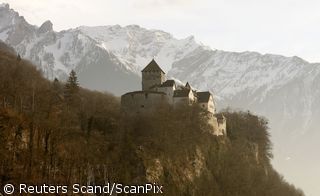Italy's presidential pardon of Mehmet Ali Agca, the Turk who tried to kill Pope John Paul II in 1981, has reminded Bulgarians of their own link to the event.
Published:
18 June 2000 y., Sunday
Italy's presidential pardon of Mehmet Ali Agca, the Turk who tried to kill Pope John Paul II in 1981, has reminded Bulgarians of their own link to the event, a withdrawn man jailed for three years before he was released for lack of evidence.
The Bulgarian angle to conspiracy theories on the assassination attempt involved Sergei Antonov, at the time the deputy representative in Rome of Balkans airlines, Bulgaria's national carrier. He has since become a ghost even in his own country, although he still works for the company.
Antanov was arrested in Rome in 1982, after Agca asserted that the airline official had given him the pistol used to attack Pope John Paul II in Saint Peter's square. Two other Bulgarians also named by Agca -- a military attache and an accountant from the Bulgarian embassy in Rome -- were never arrested.
On Friday, Agca created a stir at a court appearance in Istanbul on murder charges for the 1979 killing of Turkish journalist, for which he was condemned to death.
"I am not the killer of Abdi Ipekci. I was an actor in this scenario. I was playing the part of the murderer," Agca told a packed courtroom before a judge warned him not to speak without being given the floor.
During that time, Bulgaria denounced what it branded a plot by the US intelligence agency, the CIA, to implicate Sofia, at the time a close ally of Moscow. It denied each of Agca's allegations, which were contradictory and could not be proved in court.
Copying, publishing, announcing any information from the News.lt portal without written permission of News.lt editorial office is prohibited.
The most popular articles
 The Sydney skyline cleared Thursday, after an enormous dust storm clouded the city under a red hue a day earlier. Sydney residents began cleaning their city after a huge outback dust storm blew tones of soil into the city.
more »
The Sydney skyline cleared Thursday, after an enormous dust storm clouded the city under a red hue a day earlier. Sydney residents began cleaning their city after a huge outback dust storm blew tones of soil into the city.
more »
 European day of languages is a celebration of the many languages spoken in the EU.
more »
European day of languages is a celebration of the many languages spoken in the EU.
more »
 Job fairs pitch benefits of working abroad in the EU.
more »
Job fairs pitch benefits of working abroad in the EU.
more »
 The world’s poor will bear the brunt of the impact of global climate change.
more »
The world’s poor will bear the brunt of the impact of global climate change.
more »
 The European Heritage Days – supported by the European Commission – will once again attract around 20 million people in 49 countries to visit selected sites and monuments.
more »
The European Heritage Days – supported by the European Commission – will once again attract around 20 million people in 49 countries to visit selected sites and monuments.
more »
 An Asian black bear attacked a group of tourists waiting at this bus station in a mountainous region of central Japan.
more »
An Asian black bear attacked a group of tourists waiting at this bus station in a mountainous region of central Japan.
more »
 One hundred and sixty-eight couples line up to say “I Do.” The mass wedding ceremony took place at Singapore's Botanic Gardens to mark the attraction's 150th anniversary.
more »
One hundred and sixty-eight couples line up to say “I Do.” The mass wedding ceremony took place at Singapore's Botanic Gardens to mark the attraction's 150th anniversary.
more »
 The Commission celebrates this year's European Day of Languages, 26 September, for almost a week.
more »
The Commission celebrates this year's European Day of Languages, 26 September, for almost a week.
more »
 New navigation and layout make it easier to find what you’re looking for on the EU site’s main pages – in any official EU language.
more »
New navigation and layout make it easier to find what you’re looking for on the EU site’s main pages – in any official EU language.
more »
 The Helsinki Commission, Helcom, receives the Swedish Baltic Sea Water Award 2009.
more »
The Helsinki Commission, Helcom, receives the Swedish Baltic Sea Water Award 2009.
more »